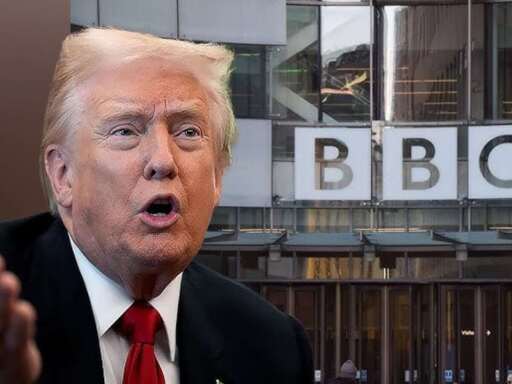The BBC is currently going through a crisis over alleged ‘left-wing bias’ after mis-editing a Donald Trump speech. But history and evidence show that the claim is not only entirely false but the opposite of reality. The ‘public service‘ broadcaster is pro-corporate, imperialist, and right-wing.
Cardiff studies
A Cardiff study has shown many facets of the BBC’s conservative leanings and pro-big-business stance. It demonstrated how the BBC laid the foundations for Brexit by scapegoating the EU as a major cause of people’s woes.
What’s more, it’s biased towards the Conservative Party. Despite Labour’s rightward drift under Tony Blair, the BBC gives more airtime to Conservatives than Labour. Of course, the governing party will receive more coverage. But Gordon Brown outnumbered David Cameron in appearances by 2:1 during the period studied. Meanwhile, David Cameron outnumbered Ed Miliband in BBC coverage by 4:1. That’s double the views aired from the Conservative leadership compared to the Labour leadership.
Another Cardiff study looked at nine years of Question Time coverage. It found an overrepresentation of right-wing panellists, particularly from conservative newspapers. Indeed, usually on Question Time there is one genuinely critical voice, if any, and four others who all broadly support neoliberalism (the status quo).
BBC history: it was designed for propaganda
In Tom Mills’ book, The BBC: Myth of a Public Service, he reveals through archives that the government brought the outlet into arms-length public ownership to crush the 1926 general strike. Winston Churchill, for one, wanted the BBC to become a government mouthpiece. But other establishment voices were more crafty, acknowledging that the BBC would be more effective if it came across impartial.
As Mills states in an interview with Jacobin:
There was a split among ministers in the Conservative governments over the right way to handle the BBC. Hardliners like Chancellor of the Exchequer Winston Churchill wanted to take it under direct control. The more moderate, strategic wing, which included Prime Minister Stanley Baldwin, wanted to give the BBC a degree of notional independence, while maintaining the threat of commandeering it if necessary. The moderates’ reasoning was that the BBC would be a much more effective instrument in terms of persuasion for defeating the general strike if people believed it to be independent.
Today: the BBC needs change
In the midst of the backwards BBC debacle today, Labour MP Clive Lewis called for changes:
The “people’s broadcaster” is now overseen by private equity grandees, ex-CEOs of privatised utilities, investment bankers and assorted corporate heavyweights. Hardly the broad public it claims to serve. If this Labour government is serious about rebuilding trust, it should start with the BBC itself. Turn it into a cooperative. Put power in the hands of its audience and its workers- not a revolving door of wealthy elites.
Indeed, government ministers choose most of the BBC governing board. And even ex beeb journalist and Bloomberg editor Mishal Husain has said that ministers should no longer select the board.
It’s clear the broadcaster needs fundamental changes to make it accountable. It needs to reflect a wide range of views, not just neoliberalism with a handful of token critics.
Featured image via the Canary
By James Wright
From Canary via this RSS feed


